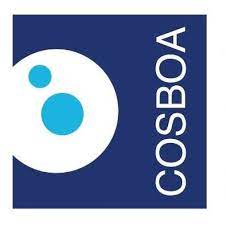Equipping professional accountants for sustainability
The International Federation of Accountants has developed a concise resource to guide accounting professionals and...
READ MORE
The Council of Small Business Australia has released a discussion paper on the challenges small business are facing in the era of COVID and have called on the federal and state governments for more guidance and support.

COSBOA met on 14 January to discuss the impact of the current Omicron outbreak – which has claimed more lives since 1 January 2022 than in the previous 18 months – on small business and canvas solutions from its members.
It found there were a number of key themes and issues that its members highlighted.
COSBOA members commended a number of recently introduced state and federal measures to support small businesses, including the removal of the 20-hour working limit on certain visa holders, the extension of landlord code of practice in NSW and Victoria, and small business support grants in South Australia and Tasmania. They also praised ongoing government measures such as the Instant Asset Write-Off.
However, the meeting found that most small businesses are experiencing an unprecedented amount of stress due to low customer numbers and high rates of staff absenteeism.
It commented on the fact that although no jurisdictions are imposing lockdown level restrictions, widespread fear of contracting COVID-19 is lowering consumer confidence and spending at small businesses. It was reported that some hospitality businesses are experiencing revenue drops of up to 80 per cent and that live music events were experiencing no-show rates as high as 60 per cent.
COSBOA members said the combination of isolation requirements and high COVID-19 case numbers is causing workforce shortages across almost all industries and their supply chains. For example, independent supermarkets in NSW are experiencing absentee rates as high as 45 per cent. Many small businesses in hospitality, hair and beauty have had to close temporarily because of these shortages.
The cost and current shortage of Rapid Antigen Tests is compounding this stress.
It was suggested by members that small businesses would benefit from further support in the form of government assistance to cover the growing burden of personal leave. COSBOA members noted the growing cash flow burden associated with having to pay personal leave (also colloquially known as sick leave) to employees unable to work due to contracting COVID-19. For businesses that have to close due to staff shortages, there is no revenue coming in to fund personal leave. Additionally, it was reported that many employers are uncertain about when they are required to pay personal leave and when employees can receive the COVID-19 Disaster Payment.
Small businesses are seeking additional financial support programs across all impacted businesses. Existing mechanisms including the Instant Asset Write-Off, Loss Carry Back, and lower tax rates are strongly supported. A JobSaver type scheme to assist with maintenance and recovery of business during this era of COVID is also sought.
Though the era of strict lockdowns and prescriptive rules may have passed, small businesses still need clear and consistent guidance about how to live with COVID-19.
Members commented on the rapid pace at which the COVID-19 situation in Australia had changed, noting that December 2021 felt like a different era. For example, though the easing of isolation requirements has been a welcome relief for the majority of small business owners, some are still fearful of COVID-19 and finding it hard to adjust their thinking about the best way to manage the risk of the virus.
It was suggested that the justification for changing the rules could be better articulated by leaders to assuage widespread COVID-19 anxiety and reassure the community that their safety isn’t being compromised.
Small businesses would strongly benefit from clear, nationally consistent guidance on how to manage the risk of COVID-19 in this new era of ‘living with the virus’. This includes how to conduct a risk assessment, how to mitigate the risk, and what to do if a staff member contracts the virus. The latter should clearly articulate who needs to isolate and for how long, who needs to be tested and when, and when RATs can be used.